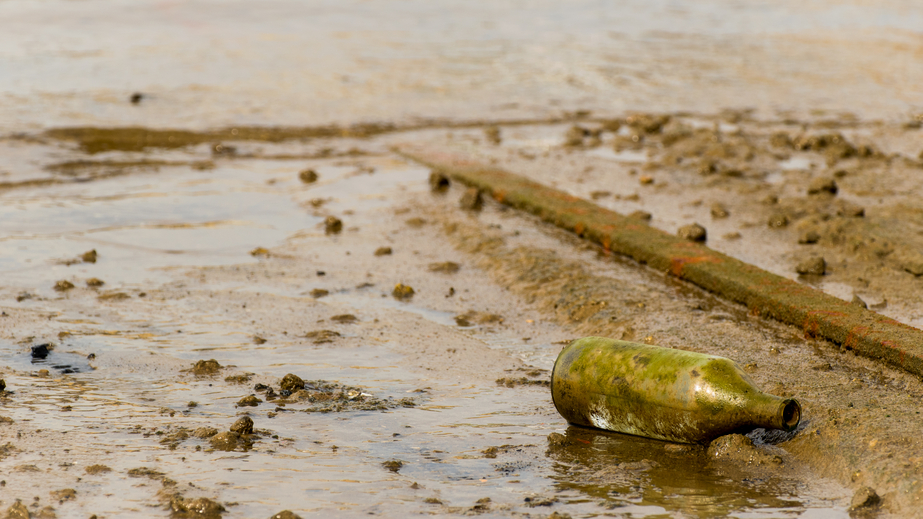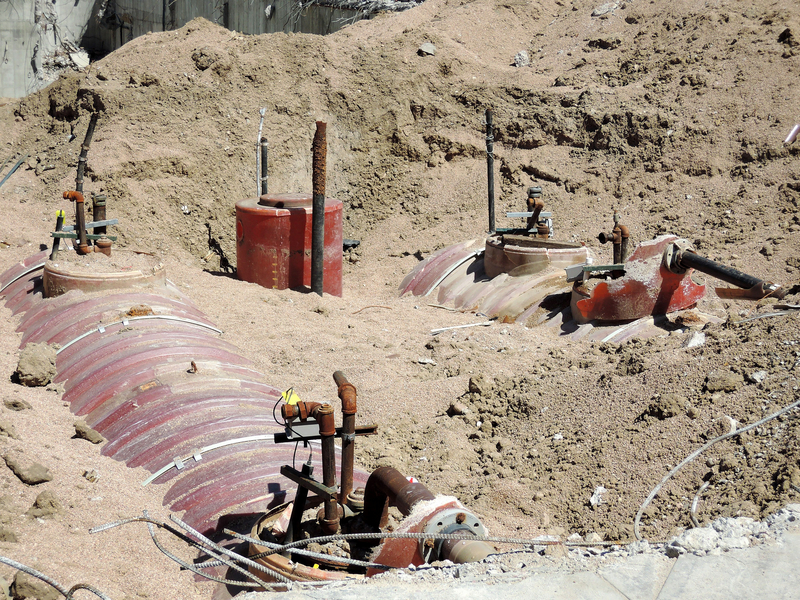North Carolina Environmental and Ethics 15 PDH Discount Package 3
Courses in this Package
Boiler Fuels, Emissions and Efficiency (M02-028)
Identification and Selection of Remedial Action Alternatives (C08-002)
Release Detection for Underground Storage Tanks and Piping (C04-050)
Free Speech vs. Regulation of Professional Engineers (LE1-009)

This online engineering PDH course introduces the different types of solid, liquid, and gaseous fuels commonly fired in industrial, commercial and institutional boilers. It describes the characteristics of fossil and non-fossil fuels with emphasis on coal, oil, natural gas, biomass, and refuse-derived fuels (RDFs). This course also presents the principle emissions from combustion boilers that are regulated under the Clean Air Act (
This 2 PDH online course is applicable to mechanical engineers, designers, contractors, building professionals, and manufacturers who are interested in gaining a better understanding of the various boiler fuels and their emissions.
This PE continuing education course is intended to provide you with the following specific knowledge and skills:
- Understanding the different types of solid, liquid and gaseous fuels commonly fired in boilers
- Knowing the four principle emissions from combustion boilers; nitrogen oxides (NOx), sulfur dioxide (SO2), particulate matter (PM) and carbon monoxide (CO)
- Learning how to maximize efficiency by understanding combustion losses and boiler losses
In this professional engineering CEU course, you need to review Chapter 3, "Fuels, Emissions, and Efficiency" of the Department of Energy (DOE) Publication "Guide to Low-Emission Boiler and Combustion Equipment Selection".
Upon successful completion of the quiz, print your Certificate of Completion instantly. (Note: if you are paying by check or money order, you will be able to print it after we receive your payment.) For your convenience, we will also email it to you. Please note that you can log in to your account at any time to access and print your Certificate of Completion.

This online engineering PDH course provides technical guidelines that will aid in the identification and selection of remedial actions at uncontrolled hazardous waste sites. It presents information on site-specific corrective measure alternatives including performance of preliminary assessments and site investigations to define the problem and determine its extent; remedial investigations and feasibility studies to develop options for remedial action; and selection of one or more cost-effective remedial actions in support of clean-up activities.
This 8 PDH online course is applicable to civil, environmental or geotechnical engineers, as well as design and construction personnel involved with hazardous and toxic waste remedial activities.
This PE continuing education course is intended to provide you with the following specific knowledge and skills:
- Determination of the nature and extent of contamination
- Establishment of clean-up criteria
- Development and screening of remedial action alternatives
- Detailed analysis of remedial action alternatives
In this professional engineering CEU course, you need to review Chapter 2 of the US Corps of Engineers Publication EM 1110-1-502, "Identification and Selection of Remedial Action/Corrective Measure Alternatives".
Upon successful completion of the quiz, print your Certificate of Completion instantly. (Note: if you are paying by check or money order, you will be able to print it after we receive your payment.) For your convenience, we will also email it to you. Please note that you can log in to your account at any time to access and print your Certificate of Completion.

This online engineering PDH course presents information about the 2015 federal underground storage tank (UST) system requirements and regulations. UST and its underground piping must have release detection to comply with federal law. In addition to complying with federal law, some implementing agencies may have additional regulations which apply to the system.
Each of the sections herein focus on one release detection method for underground tanks and/or the requirements for underground piping. You will find answers in this booklet to basic questions about how release detection methods work and which methods are best for your UST site.
As of September 2015, over 528,000 UST releases were confirmed since the UST program was implemented. At sites without release detection, contamination can spread undetected, requiring difficult and costly clean-ups.
If you have effective release detection, you can respond quickly to signs of releases. You can minimize the extent of or eliminate potential for environmental damage and the threat to human health and safety. Early action also protects you from high costs that can result from cleaning up extensive releases and responding to third-party liability claims.
This 4 PDH online course is applicable to petroleum engineers, owners/operators, and personnel involved with the release detection of underground storage tanks.
This PE continuing education course is intended to provide you with the following specific knowledge and skills:
- Learning the basic release detection requirements for underground storage tanks (USTs) and piping
- Understanding the different release detection methods for USTs and choosing the best option for a given application
- Familiarizing with the federal regulatory requirements for release detection
Upon successful completion of the quiz, print your Certificate of Completion instantly. (Note: if you are paying by check or money order, you will be able to print it after we receive your payment.) For your convenience, we will also email it to you. Please note that you can log in to your account at any time to access and print your Certificate of Completion.

This online engineering PDH course will establish the relationship between the actions of a licensing board for professional engineers and the Constitutional right of free speech.
This course discusses the background and findings of a legal case that arose when a state licensing board for professional engineers attempted to restrict the right of an engineer from speaking about a public safety issue. Actual legal documents and associated correspondence are discussed, and their implications analyzed.
The 1 PDH online course is intended for all registered professional engineers wanting to know about the relation between constitutionally protected free speech and the powers of a licensing board for professional engineers.
This PE continuing education course is intended to provide you with the following specific knowledge and skills:
- Understanding the value of free speech in discovering the best solution to technical problems
- Realizing the difference between protected and unprotected speech
- Knowing an example in which the actions of a PE licensing board was limited by the Constitutional right of free speech
- Familiarizing with the meaning of a board letter that announces the opening of an investigation
- Understanding the meaning and use of a Notice to Impose a Civil Penalty
- Understanding the significance of working outside the context of an employment or contractual relationship
Upon successful completion of the quiz, print your Certificate of Completion instantly. (Note: if you are paying by check or money order, you will be able to print it after we receive your payment.) For your convenience, we will also email it to you. Please note that you can log in to your account at any time to access and print your Certificate of Completion.